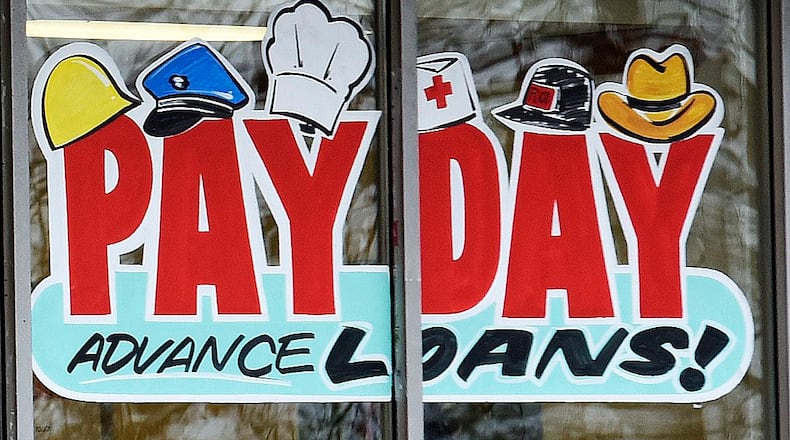Wednesday is the last legislative session day for the House and Senate before lawmakers leave on an extended break. They aren’t expected to return to Columbus until after the November election, though more legislative sessions could be added to the calendar.
House Bill 123, introduced in March 2017, cleared the Ohio House on a 69-14 vote June 7.
That version — supported by consumer advocates but loathed by industry representatives — calls for limiting fees to $20 per month or no more than 5 percent of the principal up to $400; requiring clear disclosures for borrowers; caps on fees and interest at 50 percent of the original loan amount.
RELATED: Major changes to payday lending step closer in Ohio
“HB123 is built around core concepts such as affordable payments, reasonable time to repay, transparency and pricing that is fair both to borrowers and lenders,” said Nick Bourke, consumer finance project leader at The Pew Charitable Trusts, which has been lobbying in favor of the reforms.
State Sen. Matt Huffman, R-Lima, has suggested changes to the bill in the Senate but no amendments have been revealed.
Bourke said Huffman’s proposals would fail to protect consumers and risk burdening lenders with costly, confusing regulations.
A decade ago, by a 2 to 1 margin, Ohio voters endorsed a payday lending law that capped annual interest rates and fees at 28 percent. But since then lenders have found ways to sidestep the limits by operating as Credit Services Organizations. The result is that borrowers are now paying rates of up to 591 percent.
House Bill 123, as passed by the House, would close the CSO loophole.
Typically with payday loans, consumers borrow $100 to about $1,500 and must pay it back within 30 days, either through a post-dated check or automatic withdrawal. They pay interest and fees that can boost the annual percentage rate above 400 percent. Often, borrowers can’t make the full payment when it comes due, so they extend the loan, accruing more interest and fees.
RELATED: Fight over payday lending bill pits David against Goliath
RELATED: Ohio voters may be asked to weigh in on payday lending reforms
Any bills that both chambers don’t agree on by the end of December die when the two-year legislative session closes. Lawmakers would have to start from scratch again next year.
About the Author

